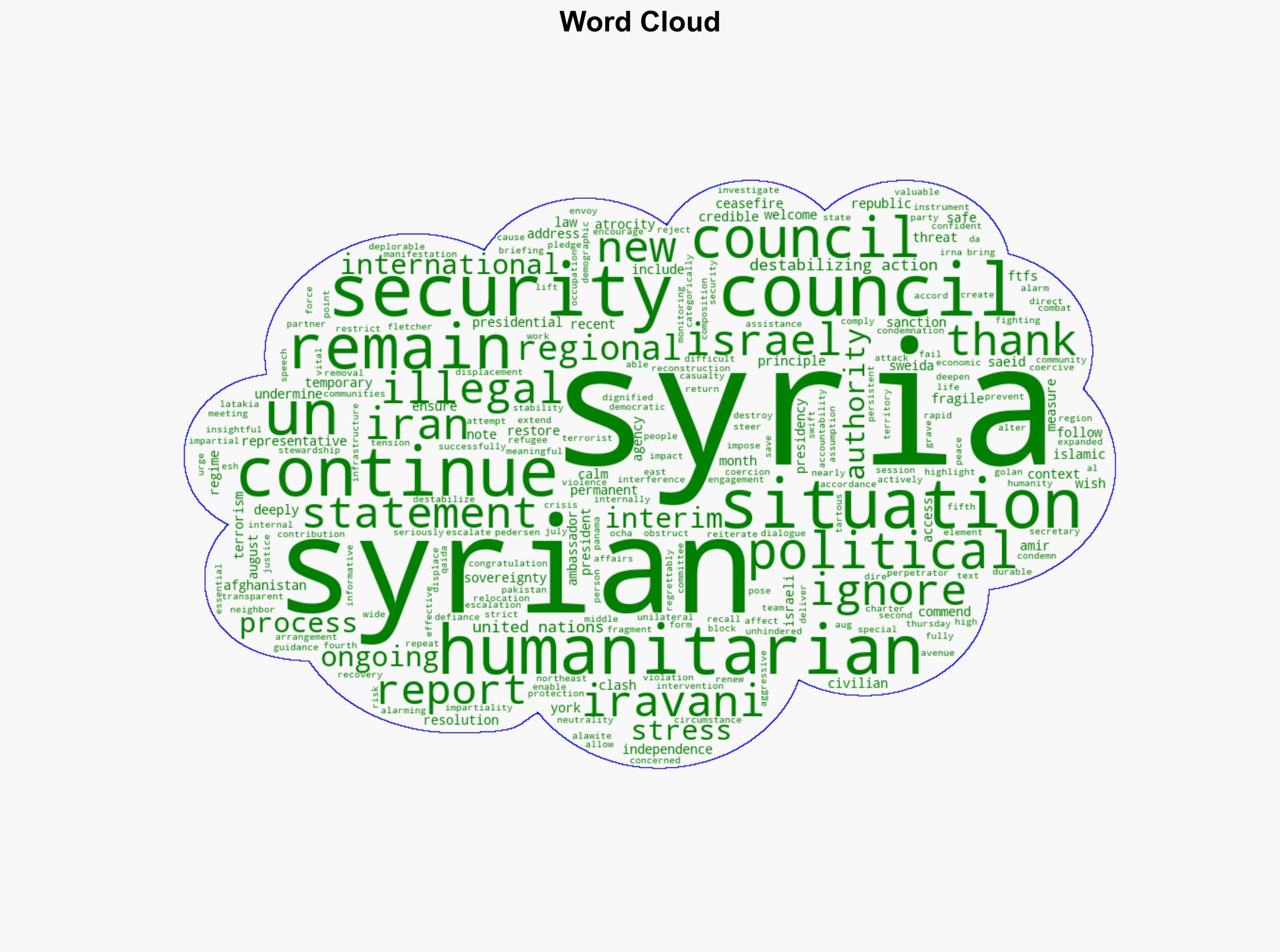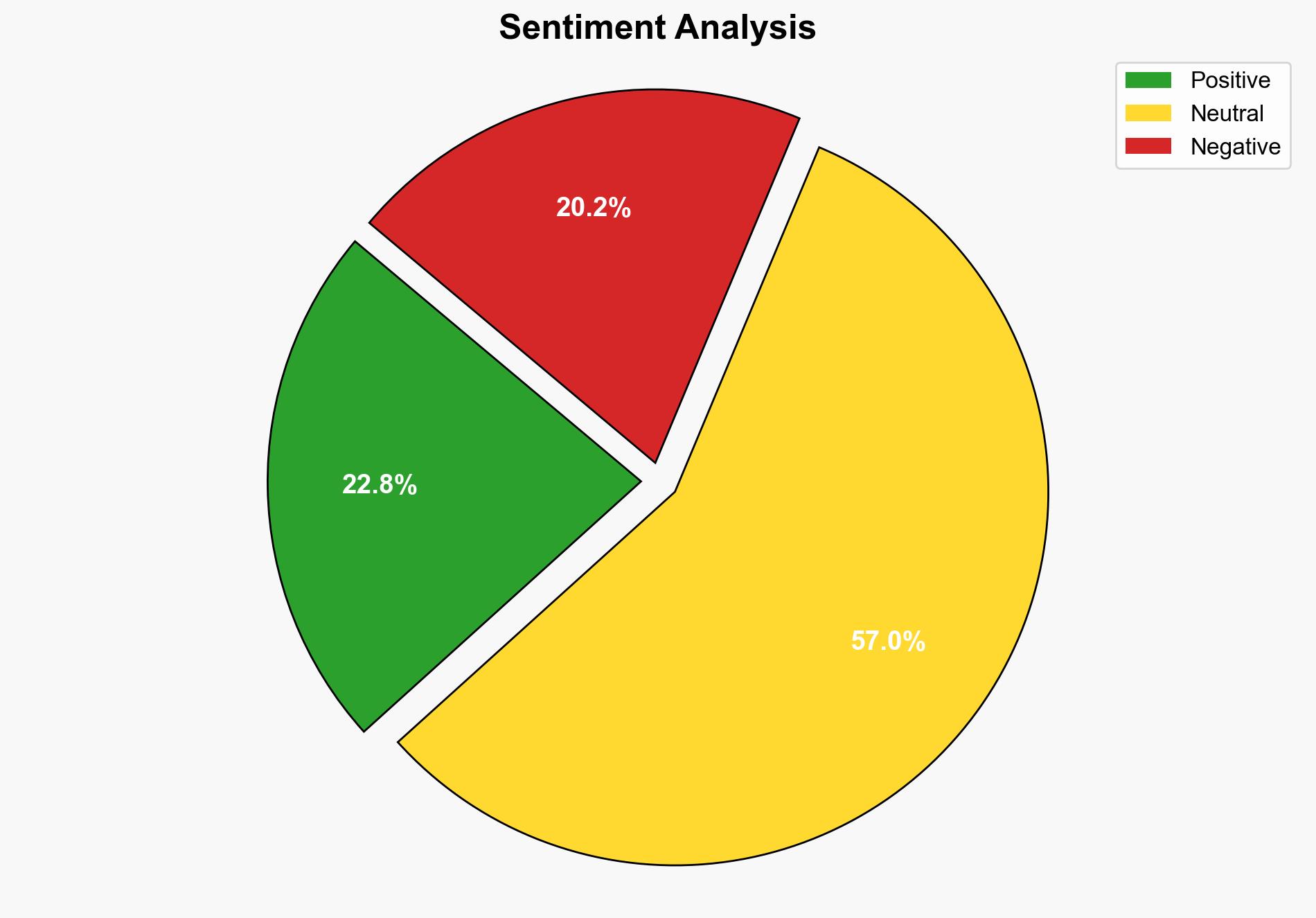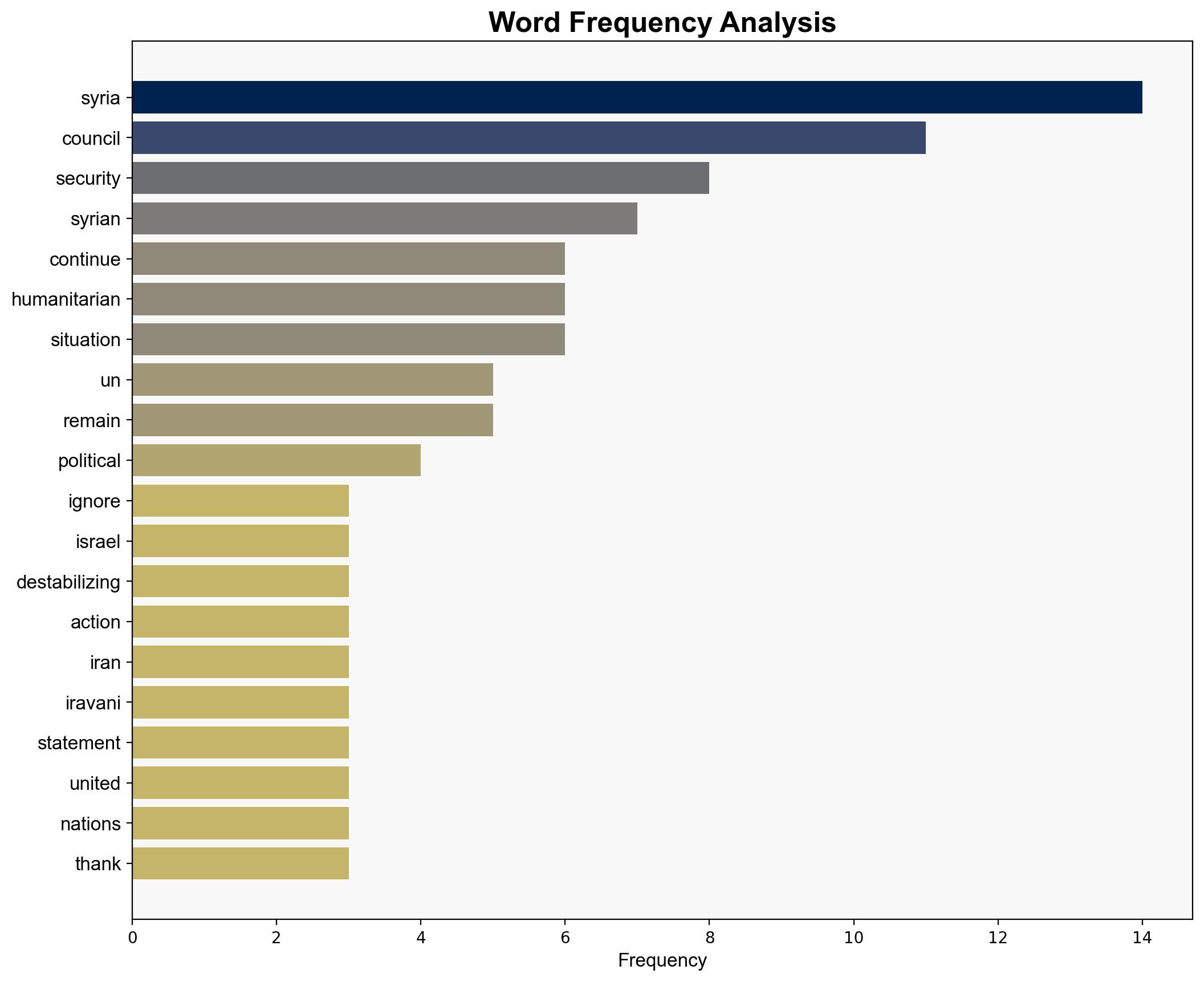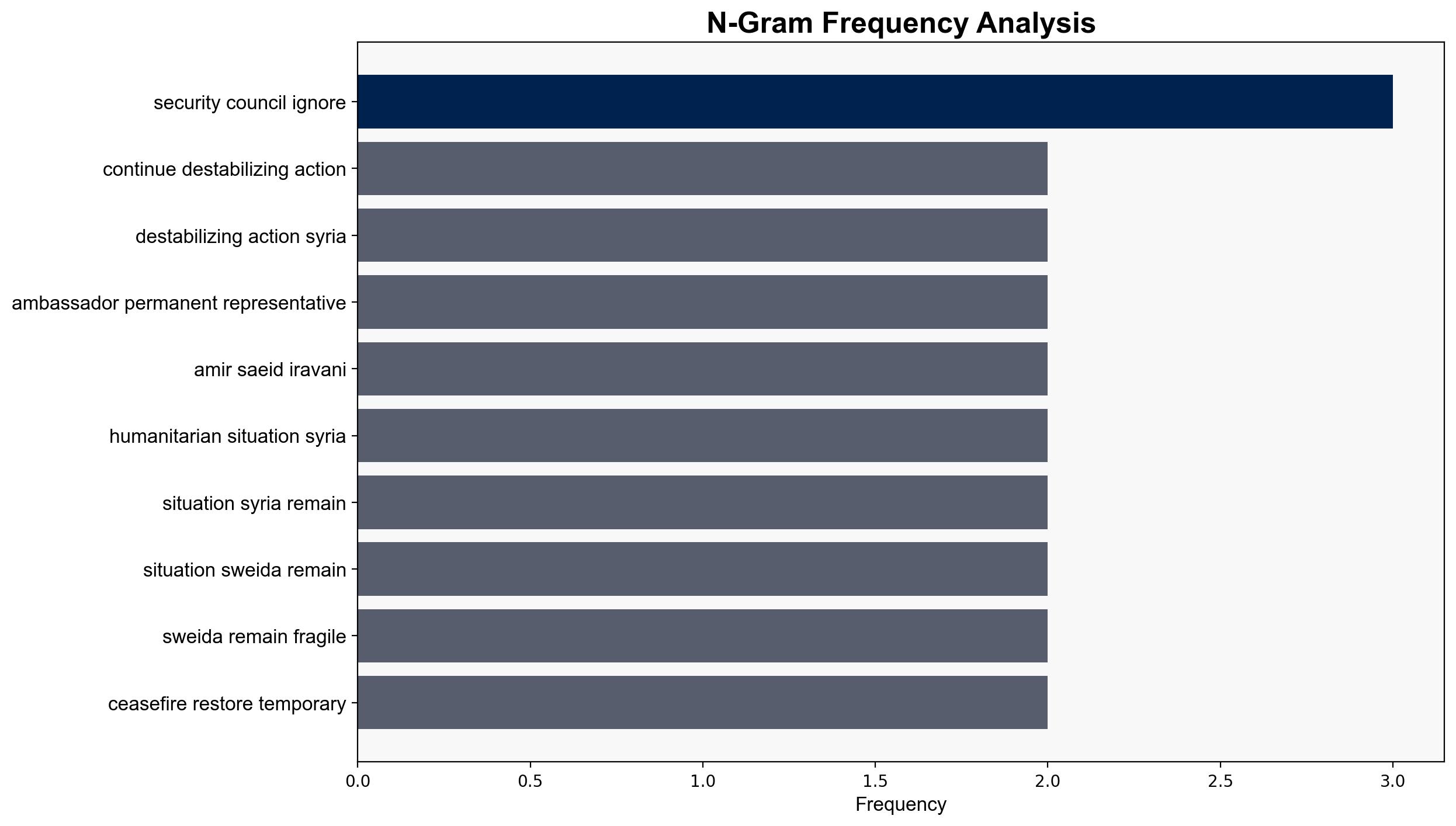Security Council should not ignore Israel’s continued destabilizing actions in Syria Iran – Globalsecurity.org
Published on: 2025-08-23
Intelligence Report: Security Council should not ignore Israel’s continued destabilizing actions in Syria Iran – Globalsecurity.org
1. BLUF (Bottom Line Up Front)
The most supported hypothesis is that Israel’s actions in Syria are strategically aimed at countering Iranian influence and preventing the consolidation of hostile forces near its borders. Confidence level is moderate due to the complexity of regional dynamics and limited transparency of military operations. Recommended action is for the Security Council to engage in multilateral dialogue to address the broader geopolitical tensions involving Israel, Syria, and Iran, while considering humanitarian impacts.
2. Competing Hypotheses
Hypothesis 1: Israel’s actions in Syria are primarily defensive, aimed at countering Iranian military entrenchment and preventing the transfer of advanced weaponry to Hezbollah.
Hypothesis 2: Israel’s actions are part of a broader strategic objective to destabilize Syria and weaken Iranian influence, potentially exacerbating regional instability.
3. Key Assumptions and Red Flags
Assumptions:
– Hypothesis 1 assumes Israel’s military actions are reactive and focused on immediate security threats.
– Hypothesis 2 assumes a proactive Israeli strategy with long-term regional destabilization goals.
Red Flags:
– Lack of transparent data on the specific targets and outcomes of Israeli strikes.
– Potential bias in reporting from involved parties, such as Iran and Syria, which may influence narrative framing.
4. Implications and Strategic Risks
– Continued Israeli strikes could lead to unintended escalation with Iranian forces or proxies, increasing the risk of broader conflict.
– Humanitarian conditions in Syria may worsen, complicating international aid efforts and potentially leading to further displacement.
– Regional power dynamics could shift, affecting alliances and economic stability in the Middle East.
5. Recommendations and Outlook
- Engage in diplomatic efforts to mediate between Israel and Iran, focusing on de-escalation and conflict prevention.
- Enhance intelligence-sharing mechanisms among regional and international partners to better assess threats and coordinate responses.
- Scenario Projections:
- Best Case: Successful diplomatic intervention reduces hostilities and stabilizes the region.
- Worst Case: Escalation leads to broader regional conflict involving multiple state and non-state actors.
- Most Likely: Continued low-intensity conflict with periodic escalations, maintaining regional instability.
6. Key Individuals and Entities
– Amir Saeid Iravani
– Israeli government and military forces
– Syrian government
– Iranian military and proxy groups
7. Thematic Tags
national security threats, regional stability, counter-terrorism, Middle East geopolitics





